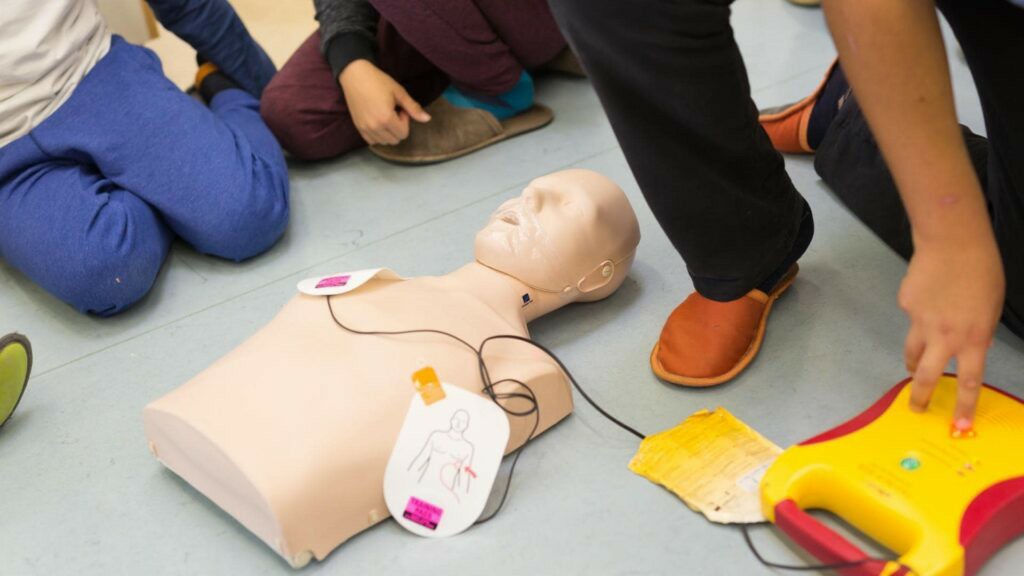Empower Your Workforce: The Essential Role of First Aid & CPR Training in Ireland
In today’s fast-paced world, ensuring the safety and well-being of employees is paramount for organizations across Ireland. One of the most effective ways to cultivate a safe work environment is through First Aid and CPR training. This critical training equips employees with the knowledge and skills necessary to manage emergencies effectively, reduce workplace accidents, and comply with health and safety regulations.
The Importance of First Aid & CPR Training
Every workplace has the potential for emergencies, from minor injuries to severe health crises. First Aid Certification not only empowers employees but also fosters a culture of safety within organizations. Here’s why investing in training is not just beneficial, but essential:
- Immediate Response: In emergencies, every second counts. Trained employees can deliver prompt assistance while waiting for professional medical help to arrive.
- Increased Confidence: First Aid and CPR training build confidence among employees, enabling them to act decisively during incidents.
- Reducing Injury Severity: Quick and effective first aid can significantly reduce the severity of injuries, improving outcomes for affected individuals.
- Promoting Safety Culture: Training encourages a proactive approach to safety, leading to fewer accidents and a healthier workplace.
Critical First Aid Skills Every Irish Workplace Should Have
Understanding and being able to apply basic first aid skills is vital. Some essential skills covered in a typical First Aid Course include:
- Wound Treatment: Learning how to treat cuts, scrapes, and abrasions to prevent infection.
- Choking Relief: Techniques such as the Heimlich maneuver can save lives in choking emergencies.
- CPR Techniques: Mastering cardiopulmonary resuscitation is crucial for responding to cardiac arrest.
- Recognizing Signs of Stroke: Knowing the FAST acronym (Face, Arms, Speech, Time) can help employees identify and respond to a stroke.
CPR Essentials: Techniques for Effective Emergency Response
In any emergency, knowing how to perform CPR can be the difference between life and death. Employees trained in CPR learn key techniques such as:
- Chest Compressions: Proper hand placement and compression techniques to maintain blood flow.
- Rescue Breaths: How and when to provide rescue breaths effectively.
- Using an AED: Understanding how to operate an Automated External Defibrillator can dramatically improve survival rates.
Navigating Workplace First Aid Regulations in Ireland
In Ireland, both employers and employees must adhere to stringent health and safety regulations. Comprehensive first aid training is often mandated as part of workplace safety compliance. Employers should ensure that:
- Designated first aiders are present within the workplace.
- First Aid kits are easily accessible and regularly stocked.
- Regular refreshers on emergency procedures are provided for staff.
How First Aid Certification Benefits Both Employees and Employers
The advantages of completing a first aid course extend to both employees and employers:
- For Employees: Improved survival and health outcomes for themselves and co-workers, leading to enhanced morale.
- For Employers: Lower insurance premiums, reduced absenteeism, and increased productivity. Training highlights the company’s commitment to employee well-being, which can improve customer trust and brand reputation.
Emergency First Aid Procedures: Step-by-Step Guidelines for Immediate Action
In emergency situations, clear procedures guide actions. Employees must be trained in:
- Assess the Scene: Ensure safety for the rescuer and the victim.
- Call for Help: Contact emergency services immediately if the situation is severe.
- Provide Care: Use trained skills to administer first aid as needed.
- Stay with the Victim: Monitor the individual until professional help arrives.
Selecting the Ideal First Aid Course: Online Versus Traditional Training Options
When selecting a First Aid Course, organizations must consider various formats:
- In-Person Training: Offers hands-on experience and direct interaction with instructors.
- Online First Aid Course: Provides flexibility, allowing employees to learn at their own pace while still receiving certification.
Both options have specific benefits, and choosing the right one depends on organizational needs and employee preferences.
Conclusion
Investing in First Aid and CPR training is not just a compliance requirement; it's an essential step toward creating a safer workplace for all employees. In cities like Dublin, Cork, Galway, Limerick, and Waterford, being equipped with these life-saving skills can turn ordinary employees into invaluable assets during emergencies.
Ready to empower your workforce with crucial life-saving skills? Enroll today in a First Aid & CPR training course and ensure your workplace is prepared for any emergency.
For inquiries, contact us at [email protected].



 349,500 Offered Certificates
349,500 Offered Certificates
 24/7 Online Training
24/7 Online Training
 Money Back Guarantee
Money Back Guarantee
 Fully Accredited Courses
Fully Accredited Courses
